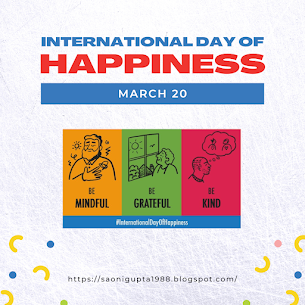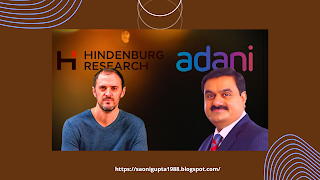Happy Vibes: World Happiness Day
World Happiness Day, or the International Day of Happiness, is celebrated annually on March 20th around the world. This day is meant to raise awareness of the importance of happiness in life and help people recognize its significance. The concept of happiness has been an essential element of human existence since time immemorial, and this day provides a platform to reflect on the importance of happiness in our lives and society as a whole.
The History of World Happiness Day
The idea of celebrating World Happiness Day was first proposed by Bhutan, a small Himalayan kingdom that has always placed happiness at the center of its national policies. In 2011, the United Nations General Assembly adopted a resolution recognizing happiness as a fundamental human goal and declaring March 20th as World Happiness Day.
The resolution was initiated by Bhutan with the support of 68 other countries, including India, the United Kingdom, and Costa Rica. The resolution recognizes "the relevance of happiness and well-being as universal goals and aspirations in the lives of human beings around the world" and invites all member states, organizations, and individuals to observe the day by promoting activities that contribute to the overall well-being of people.
The adoption of World Happiness Day was a significant milestone in the recognition of happiness as a measure of progress and a goal of public policy. The concept of Gross National Happiness (GNH), developed by the Bhutanese government in the 1970s, has gained increasing attention and popularity in recent years as an alternative to Gross Domestic Product (GDP) as a measure of a country's progress.
Unlike GDP, which measures economic growth and material wealth, GNH seeks to measure progress and development based on a broader set of indicators that include physical, emotional, and spiritual well-being, environmental sustainability, cultural preservation, and good governance.
Theme of the Year
The theme of World Happiness Day 2023 is "Be Mindful. Be Grateful. Be Kind." This theme emphasizes how crucial it is for everyone to adopt simple, daily practices to help make the world a happier and kinder place. It can be done by connecting with others as well as uniting together.
Significance of the Day
The significance of this day lies in its ability to raise awareness and promote action on issues related to happiness and well-being. It encourages people to take positive actions in their own lives, such as practicing gratitude, building positive relationships, and engaging in meaningful activities.
Another significant aspect of World Happiness Day is its focus on promoting equality and reducing inequality. Research has shown that income inequality and social inequality are major barriers to happiness and well-being, and addressing these issues is crucial for promoting a more equitable and just society.
In recent years, World Happiness Day has also played a role in shaping international policy discussions around happiness and well-being. The United Nations Sustainable Development Goals, adopted in 2015, include a goal to "promote sustained, inclusive, and sustainable economic growth, full and productive employment, and decent work for all," which recognizes the importance of economic and social factors in promoting happiness and well-being.
Strategies for Promoting Happiness
On World Happiness Day, it is essential to reflect on what happiness means and how we can promote it in our lives and society. Happiness is a complex and multifaceted concept that encompasses various dimensions of life. Here are some strategies that can help promote happiness at different levels.
Physical Level
Physical well-being is essential for happiness, and it involves taking care of one's physical health. It is crucial to prioritize self-care practices such as regular exercise, healthy eating, adequate sleep, and avoiding harmful substances such as tobacco and alcohol. These can have a significant impact on happiness.
Emotional Level
Emotional well-being is another crucial dimension of happiness, and it involves cultivating positive emotions such as joy, gratitude, and contentment while also learning to manage negative emotions such as stress, anxiety, and sadness.
Individual Level
At the individual level, there are several things we can do to promote happiness and well-being. These include practicing gratitude and positive thinking, cultivating healthy relationships with family and friends, engaging in physical activity and healthy habits, pursuing hobbies and interests that bring joy and fulfillment, engaging in mindfulness and other forms of self-reflection, giving back to the community through volunteering or other forms of social engagement, and seeking help when needed, such as from mental health professionals or support groups.
Social Level
Governments, civil society organizations, and individuals can play a crucial role in promoting happiness and well-being at the societal level. Policies that prioritize social welfare, equality, and environmental sustainability can go a long way in promoting happiness and well-being for all.
Promoting happiness at the societal level requires addressing various social, economic, and environmental factors that affect people's well-being. These include factors such as income inequality, social exclusion, discrimination, environmental degradation, and lack of access to basic services such as healthcare and education.
Social connections are also vital for happiness, and research shows that people with strong social support networks are happier and more resilient. Building and maintaining healthy relationships with family, friends, and community members can go a long way in promoting happiness and well-being.
Spiritual Level
Spiritual well-being is another crucial dimension of happiness, and it thus involves finding meaning and purpose in life beyond material possessions and external achievements. It also involves developing a sense of connection with something greater than oneself, whether it is a higher power, nature, or a sense of universal interconnectedness. This can be achieved through practices such as meditation, mindfulness, and other forms of spiritual and religious practice.
A Wrap-Up
In conclusion, World Happiness Day is a reminder that happiness is not just an individual pursuit but also a collective responsibility. Promoting happiness and well-being requires a multifaceted approach that addresses the various dimensions of life, including physical, emotional, individual, social, and spiritual well-being. So, on this World Happiness Day, let us all commit to building a happier and more resilient world together for all.







Very nice 👍
ReplyDeleteThank u so much!!!💖
DeleteAbsolutely. Happiness is a collective responsibility 👍
ReplyDelete💯 Agreed with you 🙌
Delete